SHEFFIELD SKEPTICS IN THE PUB
Critical thinking with a pint
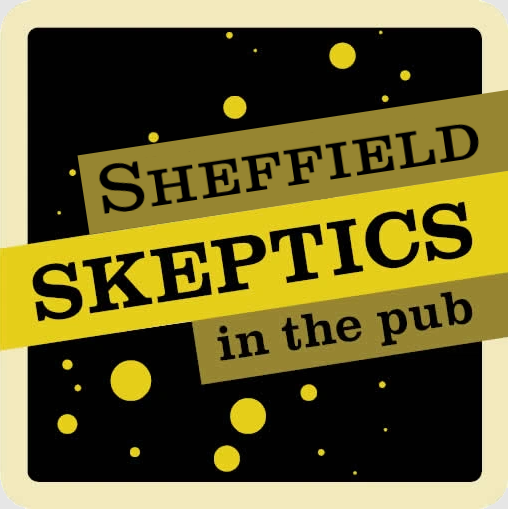
Critical thinking with a pint

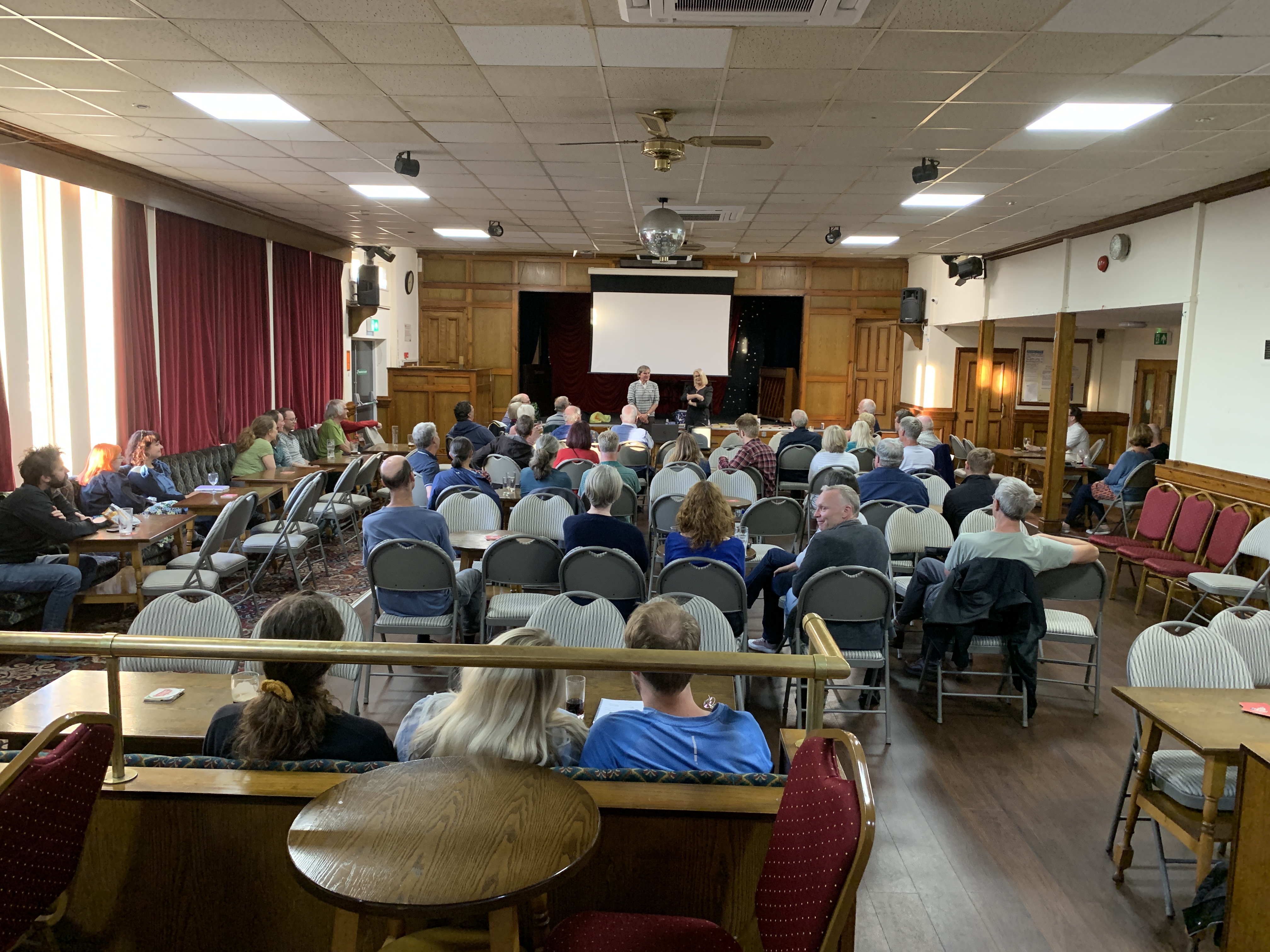
Founded in December 2009, Sheffield Skeptics in the Pub is part of a network of SitP venues throughout the UK and the rest of the world. SitP is a good way for people from all walks of life to hear from invited experts and discuss with them important issues that affect us all, in a relaxed and friendly atmosphere, while enjoying your favourite drink.
Sheffield SitP has a programme of talks that are usually held on the third Monday of the month from 7.30 pm onwards. There is no need to book-just turn up. There is no entrance charge but a voluntary donation of £3 at the meeting is welcome to cover speakers' expenses and room hire.
All talks are at Farm Road Sports & Social Club, Farm Road, Sheffield S2 2TP. The carpark is free. Press the buzzer to be let in. We are usually in the back room of the club (through the main bar) or occasionally we may be in the function room to the right of the main entrance door. Just turn up but come early to avoid queuing at the bar. There is no entrance fee, but a £3 donation is welcome at the meeting.
We recommend that you keep an eye on this website and/ or the SitP Facebook just in case we have a last-minute postponement owing to unforeseen events (weather, transport disruption, etc.) Better still, email us and we'll put you on our email list so you'll receive regular notifications.
HOSTED BY SHEFFIELD HUMANISTS

Terri O'Sullivan: Helping People Leaving High-Control Religion
There is an almost invisible community in the UK of people who have left high-control religions or cults, who have been subjected to a huge range of religious abuse, and who have been ostracised, threatened, or attacked for wanting to leave.
Terri O’Sullivan will talk about the varying forms of abuse that an ex-religious person may have experienced while in their former religious community, and what they may have experienced as a result of leaving it.
Terri is the Apostate Services Development Coordinator for the Faith to Faithless service at Humanists UK, which supports people who have left high-control religious groups. There she manages peer support services, social events, speaker events, connections with therapists, social media, and she manages and develops the apostasy awareness training courses. She has been a staff member for Humanists UK since 2022.
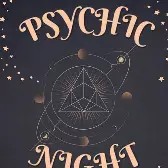
Jessica Bradley: Psychic Nights in Sheffield
Journalist Jessica Bradley will talk about the growing popularity of 'Psychic Nights' in working class communities, with particular reference to Sheffield. This was the focus of a feature she wrote in December for The Tribune, Sheffield's online newspaper. Further details to follow.
Most recent first
HOSTED BY EUROPE IN THE PUB

David Raho: Should we be Resisting or Embracing AI?
From the glowing red eye of HAL 9000 to the chatbot currently sitting in your pocket, Artificial Intelligence has shifted from a sci-fi nightmare to a daily reality. But as the technology accelerates, so does the anxiety. In this talk, David cuts through the noise to ask the ultimate question: Should We Be Resisting or Embracing AI? Join us as we explore whether we should be barricading the doors against AI or inviting it in.
David is a PhD researcher in Law and Criminology at Sheffield Hallam University, investigating the comparative adoption of AI in Probation and Rehabilitation across England and Wales, Brazil, and Japan. He combines this academic work with broad practical experience, working within Probation and more recently with the AI team at His Majesty’s Prison and Probation Service. He is both a Trustee and Fellow of the Probation Institute.
HOSTED BY SHEFFIELD HUMANISTS

Susan Cartwright: Parallel Universes
'Parallel universes seem to be the stuff of science fiction - but they are a natural consequence of several established scientific theories. In this talk I'll try to explain what kinds of parallel universes might exist, how they would (or would not) differ from our own, and whether there is any chance of proving or disproving the idea.'
Dr Susan Cartwright completed her first degree and PhD at the University of Glasgow, before moving on to postdoctoral research at the DESY laboratory in Hamburg, where she worked for the Rutherford Appleton Laboratory on the JADE experiment. She then moved to California, spending two years working for MIT on the SLD experiment at the Stanford Linear Accelerator Center in Palo Alto. In 1989, she joined the University of Sheffield, where she remained until her formal retirement last year. She is now an Honorary Senior Lecturer, working on neutrino physics at an experiment based in Japan and writing a book on the history of astronomy.

Mike Daw. Not so Weird After All: An alternative take on the science of weird stuff
In his recent book, The Science of Weird Sh*t, Prof. Chris French argues that the paranormal is all in the mind - that claims of phenomena such as telepathy, near-death experiences, energy healing and reincarnation can be accounted for by unexceptional psychological factors, wishful thinking, faulty science, or even fraud. Whilst these explanations undoubtedly hold true at least some of the time, are they sufficient to account for all reported experiences and scientific studies on the topic? Despite the efforts of prominent sceptics such as Chris French, James Randi, Richard Wiseman and Susan Blackmore, about a third of UK adults still believe that paranormal experiences are genuine and around 10% claim to have had direct personal experiences. Could they be on to something?
At this event, Michael Daw will present scientific evidence that may support the reality of such phenomena as telepathy, precognition, and survival beyond bodily death. He'll address the controversies and criticisms from Chris French and others that have led some to dismiss this field as 'pseudoscientific'. He'll describe how parapsychologists have attempted to address concerns raised by sceptics through increasingly rigorous experimental designs and how notable scientists from Max Planck and Wolfgang Pauli (two of the originators of quantum physics) to Alan Turing have been open to the possible reality of paranormal phenomena. All of which begs the question that weird stuff may not be so weird after all.
Michael lives in Ilkley, West Yorkshire, and is based at the University of Northampton. He holds a PhD in parapsychology, a Masters in computer science and a postgraduate degree in mathematics. He is an occasional guest tutor in consciousness studies at Leeds Beckett University and is currently writing a book about theories of consciousness based on an essay that last year won first prize in an international science essay-writing competition. When he's not investigating weird stuff, Michael engages in environmental activism, immersing himself in the countryside (the more natural the better), and plays piano and chess (although neither particularly well).
HOSTED BY SHEFFIELD HUMANISTS

Maddy Goodall: Sheffield's Humanist Heritage
This special 'in conversation' event features Madeleine Goodall, Humanist Heritage Manager at Humanists UK, and Glenn Lawrence, Coordinator of Sheffield Humanists, co-creators of Sheffield's Humanist Heritage walking tour. Together, they'll introduce some of the stories of the remarkable people and movements that connect Sheffield to the wider history of humanism in the UK. Discover the Chartists who gathered in their thousands in Paradise Square to demand universal suffrage, the radical publishers who risked imprisonment for selling the works of Thomas Paine, and the founders of the Sheffield Ethical Society in 1903, a key forerunner of today's humanist groups. This engaging dialogue will bring to life the freethinkers, activists, and reformers who dared to challenge the status quo and shape a more secular and ethical world, right here in Sheffield. Don't miss this chance to explore the city's incredible humanist heritage.

Ian Ridpath. The Rendlesham Forest UFO Case: Deconstructing a myth
The Rendlesham Forest UFO incident of Christmas 1980 ranks as one of the top ten UFO cases in the world as voted by UFO believers, and is often described as the ‘British Roswell’. Evidence for a series of sightings spread over two nights includes eye-witness statements from security guards at the US Air Force base near Woodbridge in Suffolk, a memo from a high-ranking USAF officer to the UK’s Ministry of Defence, and a realtime tape recording of events as they unfolded. This talk looks at the main points of the case and explains how the witnesses were fooled by a series of natural and man-made objects. The Rendlesham case is an instructive demonstration that UFO sightings can never be taken at face value no matter how reliable the witnesses may seem.
Ian Ridpath is an internationally renowned writer on astronomy and space and a well-known UFO skeptic. He was the first skeptic to investigate and explain the Rendlesham Forest UFO case after it hit the headlines in 1983. His investigations have grown into a major website which can be accessed at http://www.ianridpath.com/ufo/rendlesham.html This talk will summarize his investigations of the case.
HOSTED BY SHEFFIELD HUMANISTS

Cal Cooper. Phone Calls from the Dead: History, controversies, and theories
This evening we will take you on an exploration of alleged Phone Calls from the Dead. Often, they have been associated with the psychology of ‘After-Death Communication’ experiences, where reports occur of deceased individuals allegedly making contact. However, unusual reports of telephone calls from living individuals and perceived ‘extra-terrestrials’ have been documented too. Cal will be presenting examples of such cases, the history, controversies, psychological theories and more… ring, ring!
Cal Cooper is a Professor of Parapsychology and Public Understanding of Human Science at the California Institute for Human Science, and an Associate Professor of Psychology at the University of Northampton. He lectures on parapsychology, positive psychology, thanatology, sexual behaviour, and social psychology. He is the author and editor of five books to date, including Telephone Calls from the Dead and Psi in Psychotherapy, plus over 100 papers and articles. He is the recipient of such awards as the Eileen J. Garrett Scholarship (2009, Parapsychology Foundation), a runner up of the Ockham’s Razor Award (The Skeptic/QEDcon, 2018) alongside, winner of the Diamond Award for Public Engagement in Skeptical Activism (UON, 2020), and the D. Scott Rogo Award for Media (2021, Parapsychology Foundation).

Alice Howarth. Chasing Empowerment: The hidden cost of wellness
The wellness industry is worth an estimated $4.5 trillion dollars, stretching out into the worlds of fitness, health, beauty, sleep, stress and nutrition. Promises of self-improvement permeate every element of our lives, with all manner of tips, tricks and products targeted at optimising our homes, work lives, health, and diet often with the promise of empowerment and fulfilment. But what does wellness actually mean? In this talk Dr Alice Howarth will talk about the complex intersection between women's empowerment and the wellness industry. She will also shine a spotlight on the pervasive influence of medical bias, a deep-seated issue that disproportionately affects women's health and wellness choices. Discover how stereotypes and systemic imbalances and medical biases shape the wellness landscape, often driving women towards harmful trends and practices.
Dr Alice Howarth is cancer cell biologist, science communicator, podcaster and writer. She has been part of the skeptical community for more than a decade, and is co-host of Skeptics with a K, vice president of the Merseyside Skeptics Society, deputy editor of The Skeptic Magazine, co-organiser of the QED conference and co-founder of Skeptics in the Pub Online. Alice has delivered lectures on the topics of science and skepticism all over the world, written for publications such as The Guardian, and worked on numerous investigations into pseudoscientific claims. In her day job, Alice is an open research advocate for the University of Liverpool and the UK Reproducibility Network, working to make research available beyond academia. She believes that accessibility and inclusivity is crucial to how we engage with science and critical thinking.
HOSTED BY SHEFFIELD HUMANISTS

Join us for an enlightening evening with Andrew Copson, the Chief Executive of Humanists UK and President of Humanists International, to explore the critical role of secularism in fostering global peace and stability. In conversation with Glenn Lawrence, the coordinator of Sheffield Humanists, Andrew will discuss the historical development of secularism leading to its application in modern political systems, and how secular principles can promote understanding and cooperation between nations with diverse religious backgrounds.
Andrew Copson has worked for several civil and human rights organisations throughout his career, as executive committee member, director or trustee. He has represented humanist organisations before the House of Commons, the Organization for Security and Co-operation in Europe and the United Nations. As a prominent spokesperson for the humanist movement in the United Kingdom he is a frequent contributor to newspaper articles, news items, television and radio programmes and regularly speaks to humanist and other groups throughout Britain. He is the author of the 'Secularism' volume in the Oxford University Press's 'Very Short Introduction' series.

Jon Scaife: 'I never understood that before!'
The title of this Skeptics session is a quote from a science postgraduate student teacher. In three decades at the University of
Sheffield I've heard similar sentiments expressed many times. Science students, including Physics specialists, regularly bring with
them assortments of myths, dogmas and explanatory fictions about the physical world. Those who go on to enter teaching recruit the next
generation, unwittingly creating vicious circles of misunderstanding. No wonder that research into public understanding of Science suggests
that scientific literacy among adults is often little beyond the average for 12 year-olds. A stark inference is that for many children
secondary Science lessons are pointless!
Thirty years ago I came across the work of a small research community of Physics and Maths educators who were asking why teaching in these
fields is so ineffective. They explored this by first eliciting kids' genuine beliefs about processes in the physical world, rather
than what they think teachers want them to say. I followed suit with Science graduates on a teacher education programme and later expanded
this to include Physics undergraduates and some adult interest groups.
This Skeptics session describes some common misconceptions that people hold in physical sciences. It also includes hands-on activities that
just might lead to more instances of the title quote.
Jon Scaife is a lecturer in Physics Education at the University of Sheffield.
HOSTED BY SHEFFIELD HUMANISTS

Alex Martin: The Rituals and Holidays of Britain
Join us for this engaging and enlightening talk to discover the origins of our rituals and holidays and learn about how they can enrich our lives, as well as the value of skepticism when studying history. This talk by Alex Martin will explore the origins of various holidays and rituals celebrated and observed in Britain. There will be an in-depth focus on Christmas and Easter, as well as a case study of Jack in the Green, highlighting the extent to which scepticism is useful in the study of history. In addition to describing events and how they have changed or stayed the same, Alex will explore the various meanings of these traditions and rituals and how, as a collective experience, they enriched the lives of our ancestors and how a deeper understanding of them can still provide us with meaning and direction, even from a humanist viewpoint.
Alex Martin is a history teacher currently working in Derbyshire and has written for New Histories magazine. He is interested in many topics, periods, and approaches to history. His understanding and appreciation for the past grew from just being a way to spend his evenings into something more profound, much like how religion influences others.

David Miles. How Vaccines Work: Lessons from whooping cough
A hundred years ago, whooping cough killed more than one in every hundred children born in Europe. Eighty years ago, two women in Grand Rapids, Michigan, developed the vaccine that stopped it. All it took was years of working evenings and weekends, an army of volunteer healthcare workers and lab technicians funded by donations from local businesses. Fifty years ago, their whooping cough vaccine was at the centre of a scare that ushered in the modern antivaccine movement. The story of the whooping cough vaccine is a story of good science, bad science and of the limitations of science when applied to anything as complicated as human beings.
David Miles is an infectious disease immunologist who has worked mostly on diseases of childhood in Africa and the vaccinations that protect against them. He now lives in London and tutors on the London School of Hygiene and Tropical Medicine's online MSc course. His first popular science book, How Vaccines Work, was published in March 2023.
Website: https://www.variolator.com/; Twitter: @Variolator; Bluesky: @variolator.bsky.social.
HOSTED BY SHEFFIELD HUMANISTS

Paul Fitzgerald. Carnage and Courage: The bloody fight for the right to vote
Join us in discovering the real story of the courageous, desperate struggle behind our rights to vote in the UK, through this illustrated and engaging talk. Discover how this history has been seriously sanitized, whitewashing out the shocking and ethically bewildering amount of violence involved. Explore the vivid, provocative complexities of this issue in an illustrated talk with skeptic, freethinker graphic novelist Polyp, whose controversial and verbatim new book COURAGE: Luddites - Peterloo - Chartists - Suffragettes aims to put the history of the fight for democracy in a challenging new light, one that resonates deeply with the moral dilemmas of modern political protests and conflicts.
Paul Fitzgerald (AKA Polyp) is the author of thINK, a book of his skepticism cartoons, 'PETERLOO: Witnesses to a Massacre' and 'PAINE: a Fantastical Visual Biography.' He is the founder and chair of the Peterloo Memorial Campaign in Manchester.
HOSTED BY EUROPE IN THE PUB

Knut Roder: European Union integration and Trump 2.0
Will the Donald Trump presidency 2.0 generate another crisis for the European Union integration process? During his first time in office, Trump did not hide his hostile attitude towards the EU, and it is widely expected that the European integration project will be challenged once more by Trumps 'America first' strategy. Inevitably, EU policymakers will have to revisit key policy fields such as European security, economy and trade, climate, and the rule of law to protect themselves against adverse impacts linked to the unpredictability of US policy in the coming years. This talk will explore if previous dynamics of EU development can offer any indication of the direction the EU integration process may be heading under Trump 2.0.
Knut Roder is Associate Head of the Sheffield Institute of Social Science at Sheffield Hallam University.
HOSTED BY SHEFFIELD HUMANISTS

Reinhard Huss: Rethinking wealth: Framing and financing universal basic income for a sustainable future
Imagine a world where everyone has the security to thrive - a Universal Basic Income (UBI) that isn't just 'free money', but a fundamental right to a stable livelihood. In the face of urgent global challenges, UBI offers an unprecedented way to transform our relationships with both the planet and each other. By funding UBI through responsible approaches - like reparations for historical injustices and fees for the commercial use of shared resources (such as air, water, and land) - we can move beyond wasteful, outdated systems and build an economy designed for future generations. Join us to explore how UBI could evolve from a concept to a global reality. We'll discuss the work of the Basic Income Earth Network (BIEN) and its vision for UBI, examine creative funding sources such as wealth taxes and payments for using shared resources, and address common concerns about costs and feasibility. This conversation will challenge current ideas about our shared resources, suggesting they aren't 'free for all' but rather our 'collective wealth' - assets we should protect for future generations. This is your chance to engage in a forward-thinking conversation about funding a brighter, more sustainable future. Discover how UBI could reshape economies, provide a secure social foundation for everyone, and help foster a more balanced relationship with nature.
Dr Huss is at the UBI Lab in Leeds. His further professional details will follow.

Rajin Chowdhury: Myths in adult education: How I learned to stop worrying and love the lecture
Over the last century, our understanding of how people learn has grown immensely. Novel ideas such as experiential learning, learning styles and problem-based learning have come to the forefront of adult education accompanying skepticism about the traditional lecture. But is this skepticism founded? Raj will explore cognitive load theory and how we decide what works and what doesn't.
Rajin Chowdhury is an anaesthetic and intensive care registrar with a longstanding interest in medical education. He has been teaching and lecturing students, doctors and allied health professions for 15 years. He is an Advanced Life Support instructor, teaching healthcare professionals how to manage cardiac arrest. He has conducted research into lecturing and didactic teaching and teaches public speaking and presentation.
HOSTED BY SHEFFIELD HUMANISTS

George Askwith will be speaking about her experience growing up as a Jehovah's Witness, in conversation with others who have also left their faith. She will also talk about the work of Faith to Faithless, a section of Humanists UK supporting people who are leaving high-control religions. George was a speaker at their first ‘Apostasy Conference’ in 2021.
George has a PhD in early Christianity, and has also researched the experiences of those from high-control religions.

Colin Angus: A healthy relationship with alcohol?
Alcohol is something of a national obsession - deeply ingrained in many aspects of British culture and available on almost every street corner. Yet we are regularly faced with conflicting messages about the impact alcohol has on our health - will a glass of wine a day keep the doctor away, or give you cancer? Deaths caused by alcohol have increased sharply in recent years, yet young people are drinking less than ever. In this talk Colin will examine the data behind the health impacts of alcohol, the evidence behind drinking guidelines and try and make sense of recent changes in our relationship with the demon drink.
Colin Angus is a Senior Research Fellow and lead alcohol policy modeller in the Sheffield Addictions Research Group, one of the world's leading centres for alcohol policy research. Colin's work has played an important role in policy and legal debates about alcohol pricing policies, particularly Minimum Unit Pricing, in the UK and internationally as well as in setting low risk drinking guidelines in the UK and Australia. Much of this work has focused on inequalities associated with alcohol and how policies can improve or worsen these. He spends most of his time wrestling with complicated mathematical models but is also a fan of a good graph.
HOSTED BY SHEFFIELD HUMANISTS

Chris French: Hidden messages (that aren't really there)
One of the reasons that we are so successful as a species is our ability to detect meaningful patterns and significance in the world around us. However, in some situations we think we see meaning and significance when it is not really there. This light-hearted and highly interactive will present many examples of this phenomenon including the writings of Nostradamus, the Bible Code, detecting bullshit, our poor appreciation of randomness, and several amusing examples of pareidolia in both the visual and auditory domains.Chris French is Emeritus Professor of Psychology at Goldsmiths, University of London where, for more than two decades, he headed the Anomalistic Psychology Research Unit. He is a Fellow of the British Psychological Society and of the Committee for Skeptical Inquiry and a Patron of Humanists UK. He has published well over 200 articles and chapters covering a wide range of topics. His main current area of research is the psychology of paranormal beliefs and anomalous experiences. He frequently appears on radio and television casting a sceptical eye over paranormal claims, including several appearances on hit podcast, Uncanny. His most recent book is The Science of Weird Shit: Why Our Minds Conjure the Paranormal (MIT Press, 2024).
Claire Burn: Pond dipping: Insights beneath the surface
 Whether it's in your garden or in a nearby park, ponds are a familiar feature across the UK. In fact, there are thought
to be around 500,000 of them (according to the Wildlife Trusts)! Pond dipping is a fantastic way for families to start exploring the
natural world around them and it can reveal a lot about water quality. This will be a lively talk, with demonstrations and participation
encouraged (although completely optional).
Whether it's in your garden or in a nearby park, ponds are a familiar feature across the UK. In fact, there are thought
to be around 500,000 of them (according to the Wildlife Trusts)! Pond dipping is a fantastic way for families to start exploring the
natural world around them and it can reveal a lot about water quality. This will be a lively talk, with demonstrations and participation
encouraged (although completely optional).
Claire completed a Master's degree in User Experience Design in 2023, choosing to design an app for her dissertation project that was inspired by her experiences of supporting family pond dipping activities with the RSPB years ago. For further information visit Claire's website, 'A citizen science platform and app to identify, record and monitor freshwater species.'
HOSTED BY SHEFFIELD HUMANISTS
Kris D'Aout: From anatomy to society: What we can learn from indigenous peoples

Most of us take walking for granted - but our upright gait is unique and has consequences on much more than just how we go from A to B. In this talk we will explore the evolutionary background of our gait, and present examples of our own work. This includes laboratory work but also field work with a variety of populations, including indigenous people. We will briefly discuss some scientific, practical and ethical challenges this entails.Unavoidably, this talk will be about more than just gait: we have numerous adaptations to upright walking and they have a fundamental impact on who we are: a very special, upright, moral and highly cognitive species.
Kris D'Aout is a zoologist by background and has done biomechanics research for 30 years on humans as well as other animals. He works at the Institute of Life Course and Medical Sciences of the University of Liverpool where he combines his fundamental interest with clinically relevant work, focussing on the function of the human foot and the impact of footwear as we age.
David Dixon: Circular Vertical Farming: Closing the loop in food production
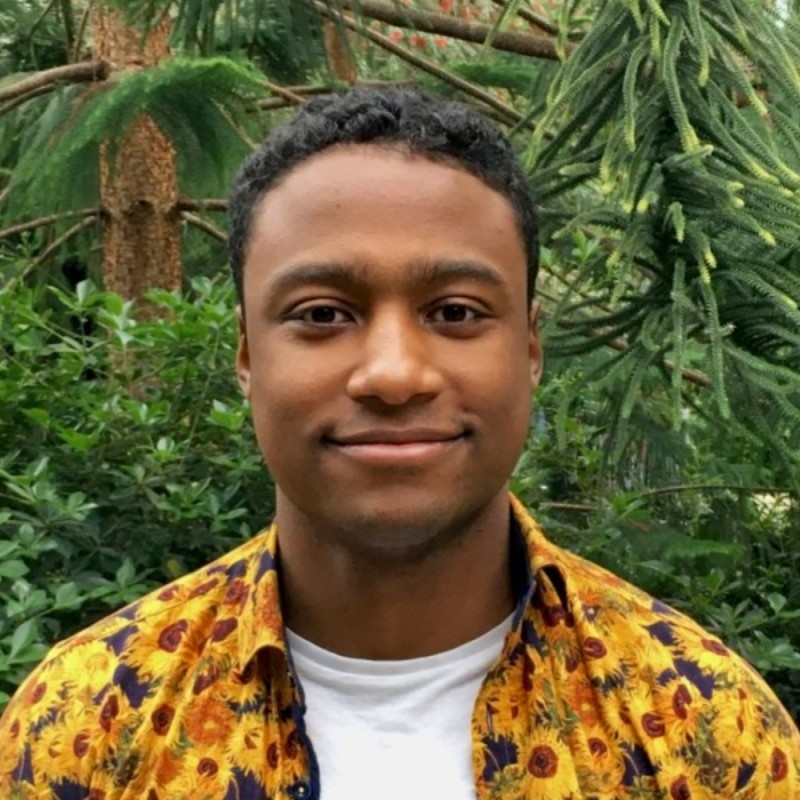
David is the co-founder and CEO of Future Greens. Future Greens develops, builds and operates urban vertical farms that grow fresh produce year-round with energy and fertilisers extracted from organic waste. Currently, Future Greens is part of a DEFRA-funded project in collaboration with the University of Sheffield, and operates a VC-funded 250m pilot site in Sheffield that supplies retail with locally grown, pesticide-free baby leaf salad.
HOSTED BY SHEFFIELD HUMANISTS
Michael Heap: Science and Religion

'For centuries, much has been written and debated about science and religion. Questions persist regarding the nature of their relationship, whether they are complementary in some way, whether they are simply incompatible, and whether one overrides the other. Conflicts come to a head over existential questions relating to the origins of the world, the emergence of life, particularly human life, the possibility of an afterlife, and whether the universe and life possess ultimate purpose. In my presentation I shall take the view that rather than these being matters to be resolved by philosophical analysis, the key issue is how individuals themselves reconcile these conflicts based on their own life experiences and what 'religion' and 'science' mean to them. 'Individuals' here refers not just to scientists, philosophers, religious leaders, and theologians, but just as importantly the lay public, both religious and non-religious. Members of the audience will be invited to make their own contributions to this debate.'
Michael Heap is a retired clinical and forensic psychologist. When pressed he now identifies himself as a humanist and active skeptic. He is one of the founding members of Sheffield Skeptics in the Pub and now its principal organiser. He is a humanist volunteer in a university multifaith chaplaincy and a school speaker for Humanists UK.
Roger Butlin: What can Snails Tell us about Evolution?
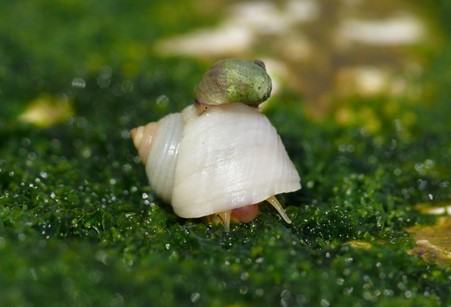
From Roger: 'I will describe how a humble periwinkle can tell us a lot about controversial evolutionary processes, especially the origin of new innovations and the splitting process that results in new species. These processes are relevant to evolution of many species, including humans.'
Roger Butlin is Professor of Evolutionary Biology at the University of Sheffield's School of Biosciences. 'I have been studying evolution, especially the origin of new species, for the last 40 years. I have been based in Sheffield since 2004, with a part-time position in Sweden since 2013. Although most of my current research is on snails, I have used many other models, especially grasshoppers and other insects.'
HOSTED BY SHEFFIELD HUMANISTS
'Polyp': Thomas Paine, The Forgotten Enlightenment Hero
'The most formidable weapon against errors of every kind is reason.'
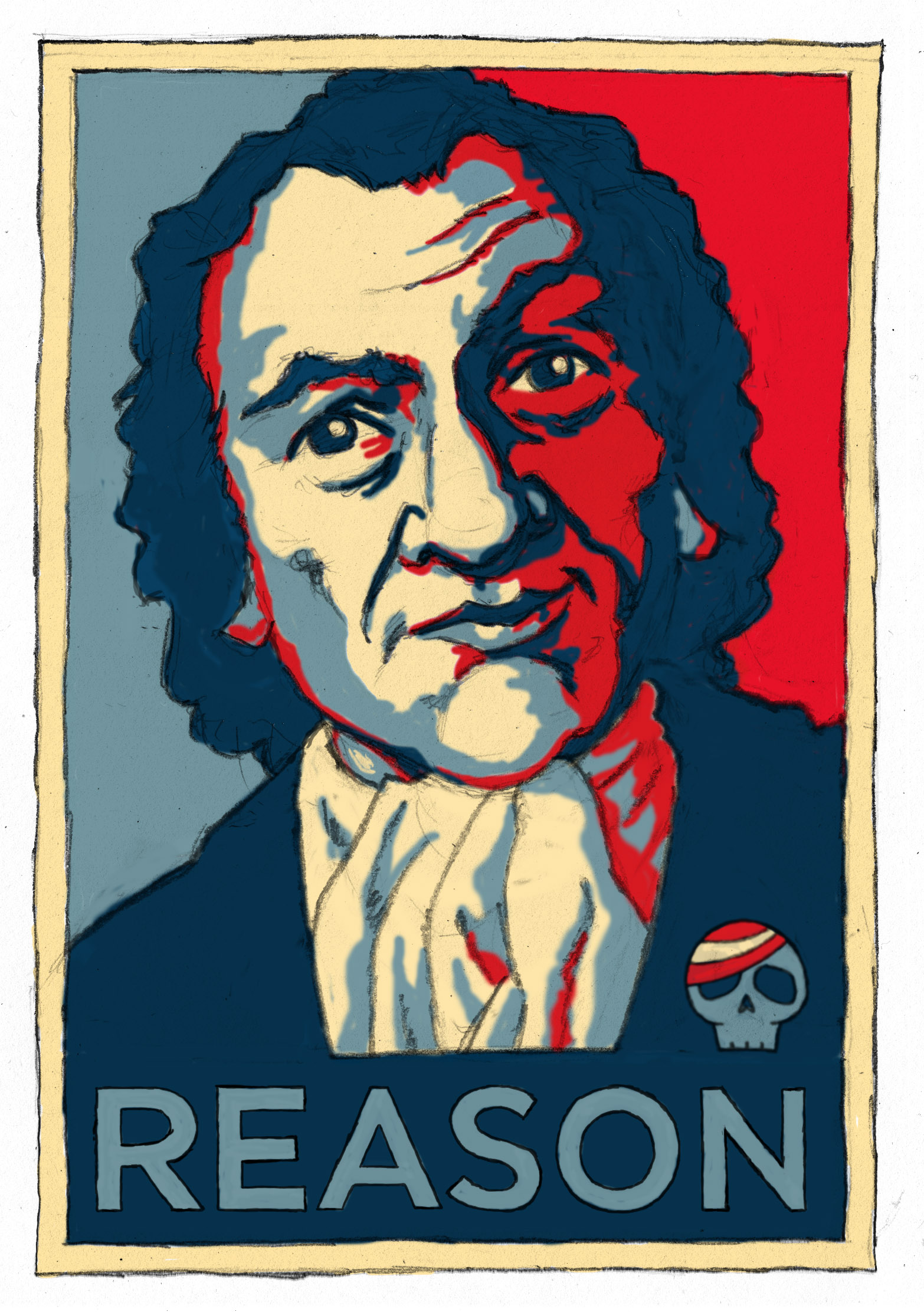
'An illustrated talk, based on my recent graphic novel biography, outlining the ideas and almost hilariously dramatic life of this
great advocate of free speech, rationality, science and democracy. His writings quite literally sparked the American War of Independence,
and yet he's been almost whitewashed from popular history... because, I'll argue, he was one of the first working-class public
figures to apply a blowtorch of plainly spoken logic to religious fundamentalism in his infamous bestselling book The Age of
Reason.
Plus: he was once a pirate! HARRRRR!
'Polyp' is a professional cartoonist, graphic novelist and science educator. His recent works include PETERLOO, about the infamous Manchester massacre of 1819, and 'thINK' a collection of his skepticism cartoons. He's talked to a range of skeptic groups around the country, and organized live debates about a whole range of conspiracy theories, some light hearted, some tense, political and alarmingly confrontational... copies of his books will be available to buy on the night.
Tim Husband: Cognitive Decline and Hearing Loss - Sacred Cow or Sales Pitch?
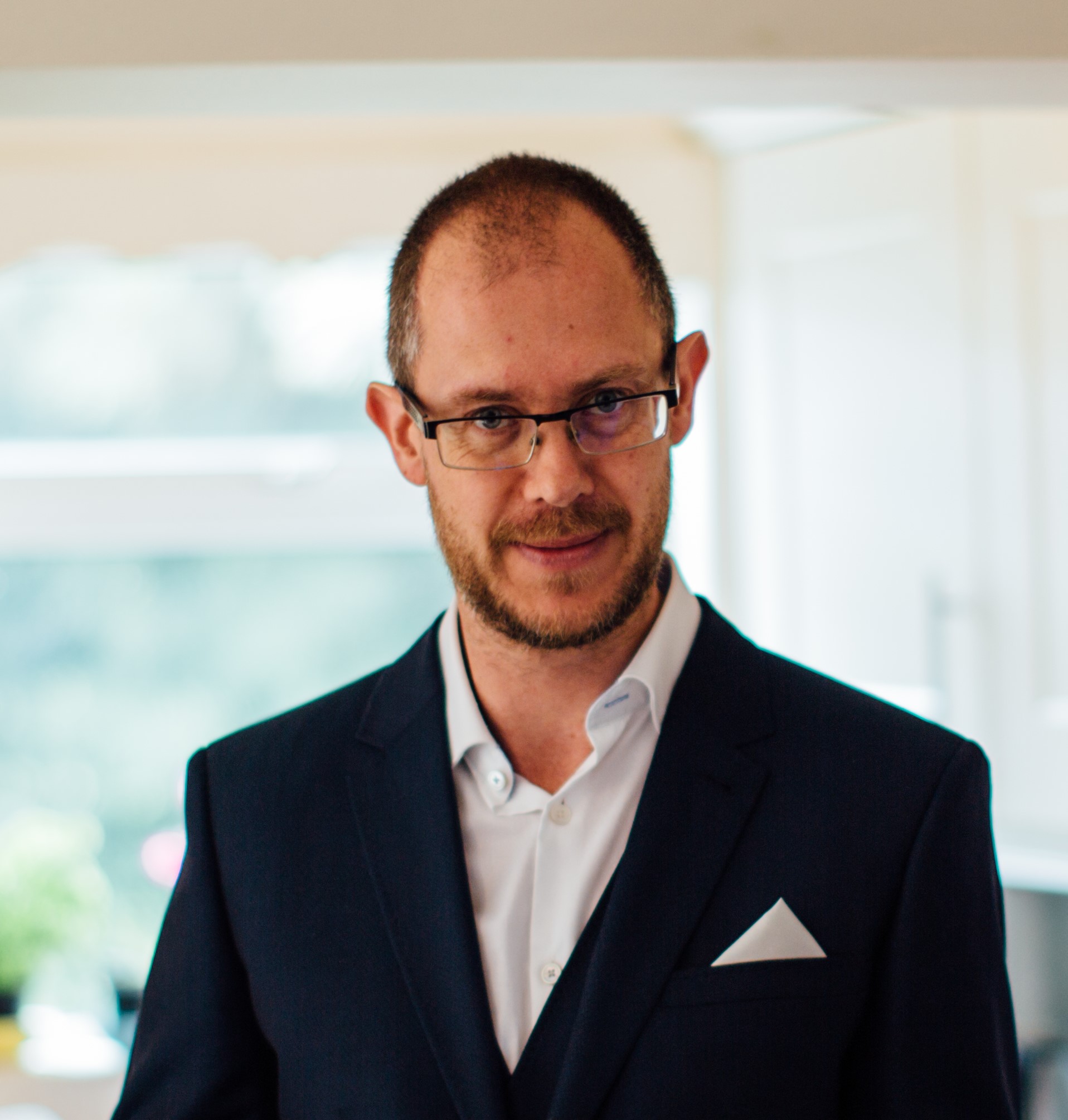
'A skeptical look at the current science and evidence for hearing loss as a causative agent of dementia in adults. Is there a genuine causal link which can be treated by prosthetic correction of hearing loss? Has the narrative in the press gone beyond the science and if so, why might this be? What neuronal changes actually occur after hearing correction and is there evidence for this? And why does grandma say shouting at her won't help?' Tim Husband addresses these questions and, along the way, looks at some strange claims he encounters in the field of clinical audiology.
Tim Husband is a Clinical Audiologist, Hearing Therapist and Registered Hearing Aid Dispenser based in Sheffield. He spent 20 years in the NHS leaving as Head of Adult Rehabilitation at Pinderfields Hospital. Following this he managed a specialist Tinnitus Clinic in Manchester before setting up a large community Audiology service across Wakefield and North Kirklees which he managed for 10 years. He now owns and runs a private hearing care clinic in Sheffield, Hearing Therapy Ltd and is director of another company that trains registered hearing aid dispensers in the management of tinnitus, Tinnitus Centres Limited. He is married to his wife, beholden to his cats and still missing his last motorbike.
P.S. He co-founded Sheffield Skeptics in the Pub in 2009).
Natasha Dowey and Rob Storrar: Fire and ice! 
What are the hazards associated with volcanoes and glaciers, and what happens when they are combined? Volcanologist Natasha Dowey and Glaciologist Rob Storrar will explore some of the dangers associated with some of the most scenic locations on Earth, including how we can understand and mitigate against potential disaster. Natasha will talk about her work on the deadly flows formed during explosive volcanism, and Rob will discuss a lesser-known threat: glacier detachments. They will then explore what happens when these hazards intersect in Iceland: the land of ice and fire.
Natasha is an Associate Professor of Volcanology and Rob is an Associate Professor of Glaciology, both working at Sheffield Hallam University. Natasha's research investigates the dynamics and deposits of pyroclastic density currents; deadly flows of hot ash, gas and rock that remain relatively poorly understood. Her work involves both field volcanology at modern volcanoes such as Tenerife and Santorini, and experimental modelling in a laboratory. Rob has worked for 13 years on understanding how water interacts with glaciers at scales from centimetres to thousands of kilometres, and from hours to 10s of thousands of years. He has worked extensively in Iceland, as well as in Canada, Greenland, Svalbard, Sweden and Finland.
Meeting cancelled.
Helen Kennedy: Is Digital Tech Good for Society?
 Digital technologies have never been more important, but are they good for society? Dating apps enable romantic connections, but
they're also used to harass. Social media platforms moderate content to limit self-harm, but they deny users access to communities of
wellbeing support in the process. Automation and AI make institutions more efficient, but they also discriminate - think about the A level
results fiasco in the UK in 2020. The fact is that digital technologies don't always have good societal outcomes: well-intentioned
technologies can end up doing harm.
Digital technologies have never been more important, but are they good for society? Dating apps enable romantic connections, but
they're also used to harass. Social media platforms moderate content to limit self-harm, but they deny users access to communities of
wellbeing support in the process. Automation and AI make institutions more efficient, but they also discriminate - think about the A level
results fiasco in the UK in 2020. The fact is that digital technologies don't always have good societal outcomes: well-intentioned
technologies can end up doing harm.
In this talk, Helen Kennedy will explain why it's important to think about what a good digital society should look like. This apparently simple question is actually extremely difficult to answer, because what constitutes the digital good is widely contested. She'll map out the varied ways that government policies and researchers from different disciplines conceive of the digital good, showing that, in research and policy circles, there has been far more attention to digital harms than to the digital good. She'll focus on the findings of one of her own recent research projects, Living With Data, which explored how people feel about the way that public sector organisations use their personal data. Such data uses are always simultaneously good and bad, making it difficult for members of the public who are not experts in these matters to know how to interpret them. She will conclude with some thoughts about what her research findings tell us about how to move towards a good digital society.
Helen Kennedy is Professor of Digital Society at the University of Sheffield and Director of the new ESRC Digital Good Network and the Living With Data programme of research. She researches how digital developments are experienced by ordinary people and how these experiences can inform the work of digital practitioners and policymakers in ways that improve our digital society. She has published over 50 outputs, including two edited collections and two sole-authored books - the most recent are Post, Mine, Repeat: social media data mining becomes ordinary (2016) and Data Visualization In Society (edited with Martin Engebretsen, 2020). She works with and advises government departments, media organisations and others, to try to make positive change happen.
Serena Turton-Hughes: Investigating Cryptic Critters and Unknown Biodiversity in UK Woodlands
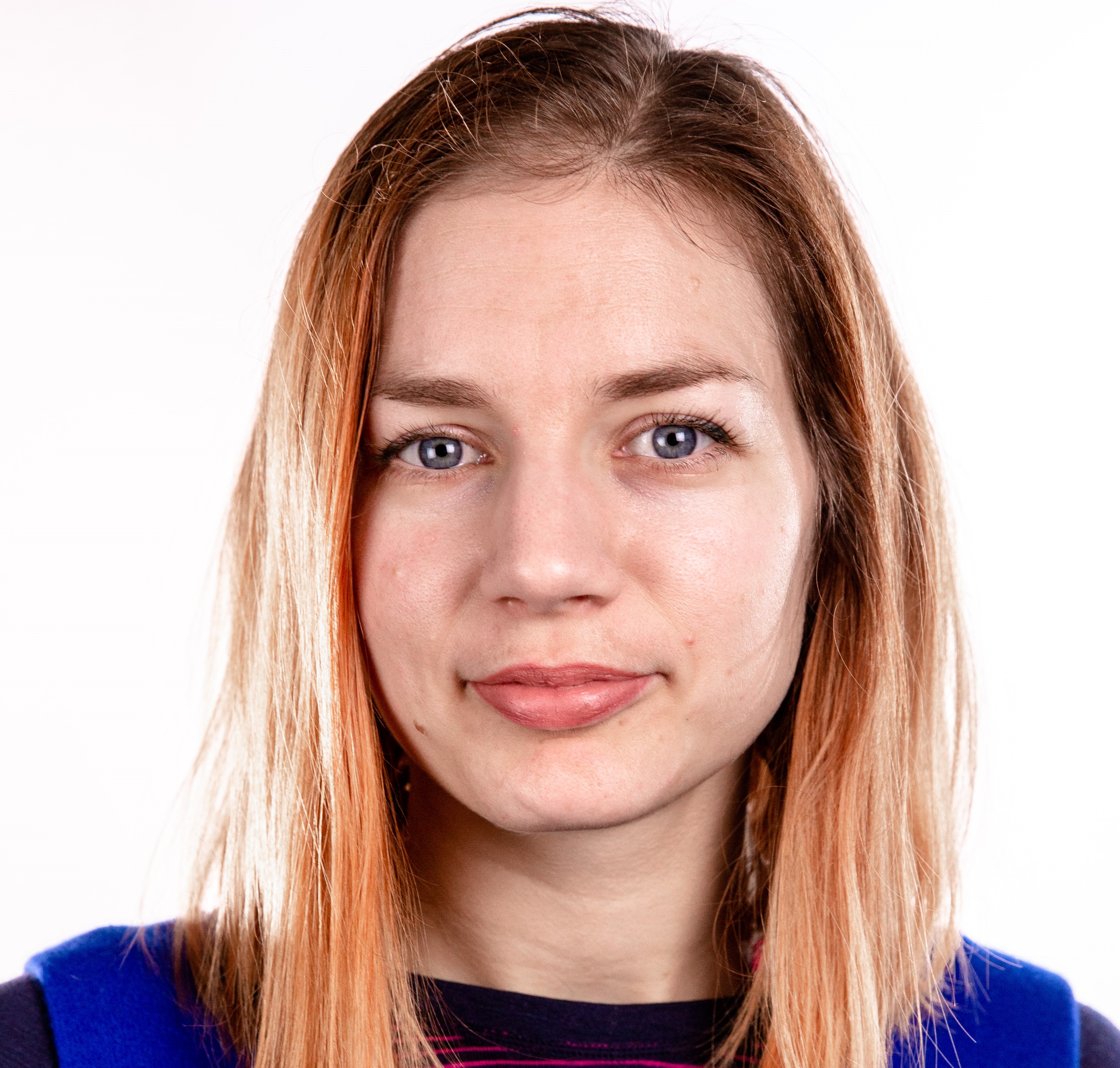 How much wildlife in your local forest do you really know about? Why are we better
at identifying some species and not others? What is hidden biodiversity and why should anyone care? Serena's talk will answer these
questions and more as we test our own taxonomic biases and learn a little more about the flora, fauna, and funga of woodlands local to us.
She will outline some of the latest ecological techniques in how to find out what creatures are sharing the woodland with us, where these
techniques might still be limited, and how her research is examining how we might think differently about trees and woodlands if we're
ready to try new approaches when looking at our local arboreal neighbours.
How much wildlife in your local forest do you really know about? Why are we better
at identifying some species and not others? What is hidden biodiversity and why should anyone care? Serena's talk will answer these
questions and more as we test our own taxonomic biases and learn a little more about the flora, fauna, and funga of woodlands local to us.
She will outline some of the latest ecological techniques in how to find out what creatures are sharing the woodland with us, where these
techniques might still be limited, and how her research is examining how we might think differently about trees and woodlands if we're
ready to try new approaches when looking at our local arboreal neighbours.
Serena is an interdisciplinary PhD student in the School of Earth and Environment and School of Biology at the University of Leeds. Her research explores anticipated dark extinctions through cultural, philosophical and biological significance of tree extinctions and the extinction of their epibionts. Her work focuses on less charismatic flora, invertebrates and fungi, in tandem with trees as microhabitats, to explore multidisciplinary perceptions of previously unseen species loss.
Chris French: Putting the Claims to the Test
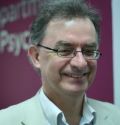 'Although the main research focus of the Anomalistic Psychology Research Unit in the Department of Psychology at Goldsmiths,
University of London, is the development and, where possible, testing of non-paranormal explanations of ostensibly paranormal experiences,
we have also over the years devoted considerable time and effort to directly testing paranormal claims. This talk will present an overview
of these investigations including claims of psychic ability and mediumship, "human magnetism", dowsing, telephone telepathy, and
precognitive dreams. Spoiler alert: I am still a sceptic.'
'Although the main research focus of the Anomalistic Psychology Research Unit in the Department of Psychology at Goldsmiths,
University of London, is the development and, where possible, testing of non-paranormal explanations of ostensibly paranormal experiences,
we have also over the years devoted considerable time and effort to directly testing paranormal claims. This talk will present an overview
of these investigations including claims of psychic ability and mediumship, "human magnetism", dowsing, telephone telepathy, and
precognitive dreams. Spoiler alert: I am still a sceptic.'
Chris French is Emeritus Professor and Head of the Anomalistic Psychology Research Unit in the Psychology Department at Goldsmiths, University of London. He is a Fellow of the British Psychological Society and of the Committee for Skeptical Inquiry and a Patron of UK Humanists. He has published well over 150 articles and chapters covering a wide range of topics. His main current area of research is the psychology of paranormal beliefs and anomalous experiences. He frequently appears on radio and television casting a sceptical eye over paranormal claims. His most recent book is 'Anomalistic Psychology: Exploring Paranormal Belief and Experience' and his next book, to be published in 2024 by MIT Press, will be 'The Science of Weird Shit: Why Our Minds Conjure the Paranormal'.
Lynne Barker: Gut Feelings: The Human Gut Microbiome: Friend, Foe or Neither?
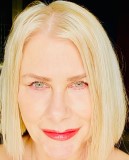 The human gut contains around 100 trillion micro-organisms collectively known as the gut microbiome
(Bull & Plummer, 2014). The human genome consists of about 23,000 genes, whereas the gut microbiome encodes over three million genes
producing thousands of metabolites influencing the host's fitness, phenotype, and health. Strictly, that means that humans are
super-organisms. A complex bidirectional interaction, the Gut-Brain axis exists between the gastrointestinal (GI) tract and the central
nervous system (CNS) and may play a role in the development of many conditions including Parkinson's, Alzheimer's, Long Covid,
Multiple Sclerosis, and obesity. In this talk Lynne discusses our current knowledge about the possible contribution of gut microbes to
health and disease, possible mechanisms of host-interaction, and controversies in relation to Parkinson's and other conditions.
The human gut contains around 100 trillion micro-organisms collectively known as the gut microbiome
(Bull & Plummer, 2014). The human genome consists of about 23,000 genes, whereas the gut microbiome encodes over three million genes
producing thousands of metabolites influencing the host's fitness, phenotype, and health. Strictly, that means that humans are
super-organisms. A complex bidirectional interaction, the Gut-Brain axis exists between the gastrointestinal (GI) tract and the central
nervous system (CNS) and may play a role in the development of many conditions including Parkinson's, Alzheimer's, Long Covid,
Multiple Sclerosis, and obesity. In this talk Lynne discusses our current knowledge about the possible contribution of gut microbes to
health and disease, possible mechanisms of host-interaction, and controversies in relation to Parkinson's and other conditions.
Lynne is a Reader in Cognitive Neuroscience and Neurocognitive Theme Lead for the Centre for Behavioural Science and Applied Psychology, Sheffield Hallam University. Her research focuses on technological innovation for those with neurological conditions and award winning new diagnostic techniques, biomarkers, and interventions. She is currently leading research that investigates the microbiome in relation to neuropathological conditions, and an award-winning team developing a wearable device for people with dementia to extend autonomy and independence (https://dementia.longitudeprize.org/discovery-award-winners-semi-finalists/). Her book How to Build a Human Brain is published by Palgrave MacMillan January 2024.
Annie Howitt: The Power of Asking for Evidence
 In a time of misinformation, purchasable blue ticks, and spurious claims to be 'following the science', how do we ask the
right questions of information we find from social media, companies, and politicians? 61% of people think it's important the government
shows the public all the evidence used to make policy decisions. And yet, the sources of data used in policy making become more complex,
modelling and big data being two key examples. But you don't need to be an expert to ask the right questions. This talk will cover how
to ask about the data behind the issues that matter to you, be that climate change or local healthcare policies. With examples of how
people asking for evidence have made a real difference, we'll show you how you can too.
In a time of misinformation, purchasable blue ticks, and spurious claims to be 'following the science', how do we ask the
right questions of information we find from social media, companies, and politicians? 61% of people think it's important the government
shows the public all the evidence used to make policy decisions. And yet, the sources of data used in policy making become more complex,
modelling and big data being two key examples. But you don't need to be an expert to ask the right questions. This talk will cover how
to ask about the data behind the issues that matter to you, be that climate change or local healthcare policies. With examples of how
people asking for evidence have made a real difference, we'll show you how you can too.

Dr Howitt is the Communities officer at the charity Sense about Science. During her PhD researching pancreatic cancer, she realised that so much of our understanding of cancer biology and treatments is inaccessible to the people it affects the most. That's how she found Sense about Science, which works with researchers to equip the public, policymakers and media with good questions and insights into evidence, particularly on difficult issues.
Kevin Kuykendall: Exploring the Palaeolithic landscape at Creswell Crags
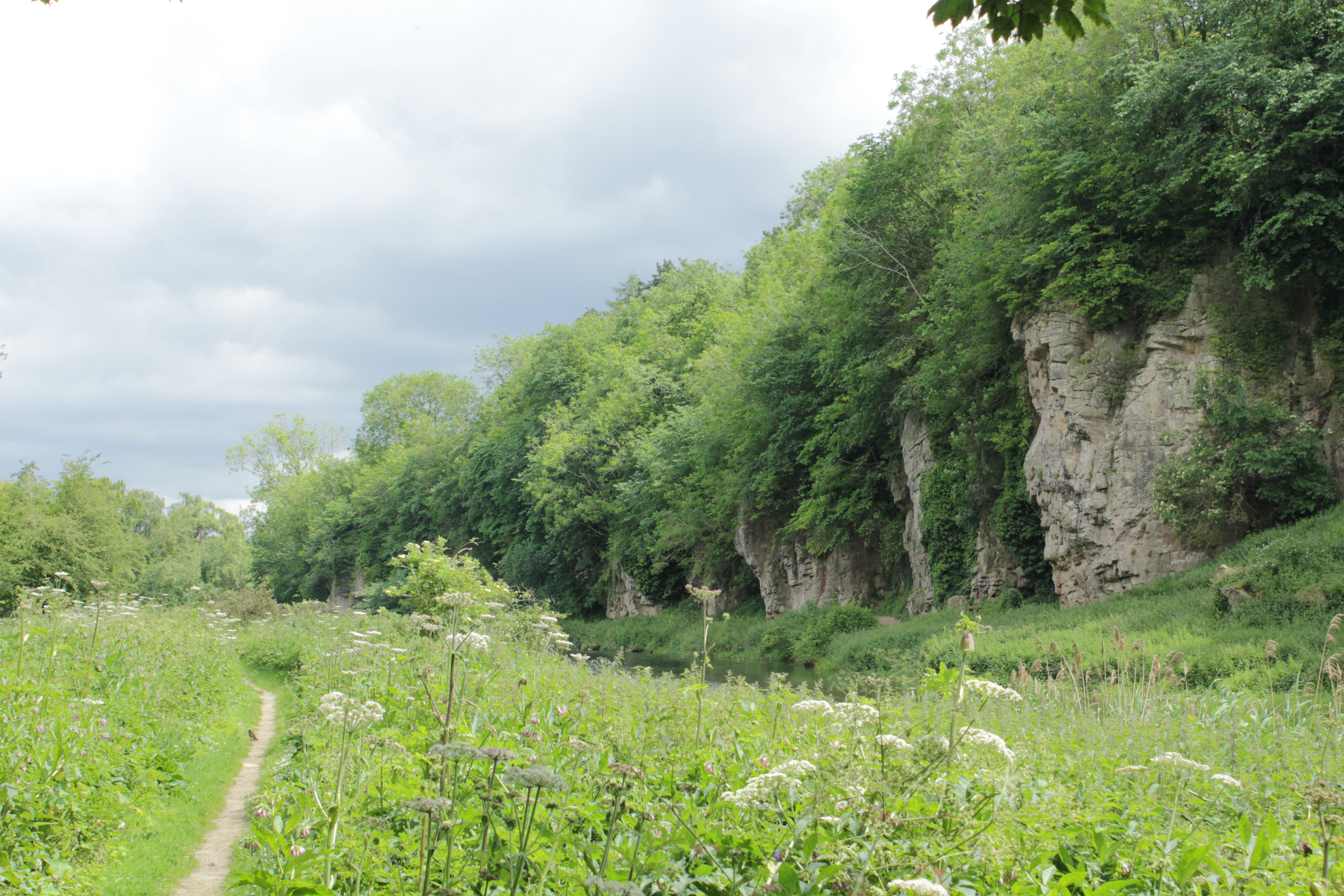 Palaeolithic archaeology at Creswell Crags has historically focused on the main caves, which have
produced a wealth of archaeological material documenting Neanderthal and early modern human lifeways. Our research project aims to build on
this framework by exploring the archaeological landscape of Creswell Crags outside of the caves - both in the gorge and in the surrounding
areas. Our aim is to recover archaeological material relevant to understanding how these early human populations were adapted to survive in
the harsh Ice Age environments that existed prior to 12,000BP, and why they continued to return to this region over tens of thousands of
years.
Palaeolithic archaeology at Creswell Crags has historically focused on the main caves, which have
produced a wealth of archaeological material documenting Neanderthal and early modern human lifeways. Our research project aims to build on
this framework by exploring the archaeological landscape of Creswell Crags outside of the caves - both in the gorge and in the surrounding
areas. Our aim is to recover archaeological material relevant to understanding how these early human populations were adapted to survive in
the harsh Ice Age environments that existed prior to 12,000BP, and why they continued to return to this region over tens of thousands of
years.
Dr Kuykendall is Senior Lecturer in Palaeoanthropology at the Department of Archaeology, University of Sheffield
Angela Glaves & Kate Quinn: Heavy metal therapy
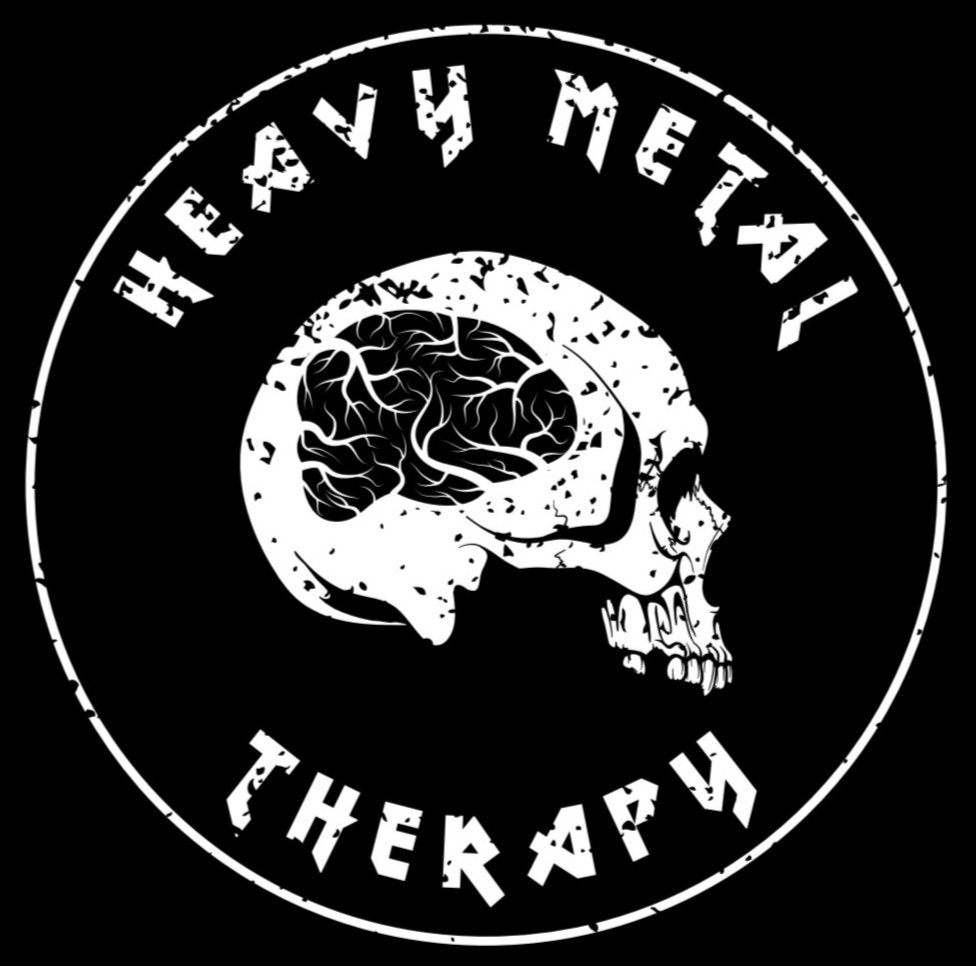 Heavy metal therapy is an online resource and community of people who find metal music helpful for mental well-being. It is a place
to find and share experiences of how metal has helped us, the meaning we take from songs or lyrics, and play lists that we have found
useful.
Heavy metal therapy is an online resource and community of people who find metal music helpful for mental well-being. It is a place
to find and share experiences of how metal has helped us, the meaning we take from songs or lyrics, and play lists that we have found
useful.
Angela Glaves is a Senior lecturer in mental health nursing who also works in the NHS as a community mental health nurse for the crisis team. Angela is an avid fan of metal music. Angela has worked in a variety of mental health services with clients ranging from adolescents to older adults Angela is interested in the prescriptive nature of society, stigma and self-stigma in mental health, recovery in metal health and the use of heavy metal music in working with people who experience mental health issues.
Dr Kate Quinn is a clinical psychologist from the UK, working in NHS services in early intervention for psychosis. She is also a fan of heavy metal music. Kate’s background is in working with young people who have extreme or unusual experiences that may be conceptualised as psychosis, such as hearing voices. She is interested in voice dialogue and community psychology approaches, and how we can engage young people in mental health support beyond the therapy room, such as via social media.
Susan Cartwright: The dark universe.
 When we look out into the night sky, we see hundreds of stars. If we use a telescope, those hundreds turn into millions. Yet all
these millions of stars make up less than 1% of the energy content of the Universe: despite appearances, the Universe is dark. Some of this
dark material is simply matter that is cool (so it doesn't glow in visible light) and compact (so it doesn't block out a noticeable
amount of background light) - in this broad sense, you and I are dark matter. However, there is clear evidence that most of the invisible
matter is not like this: it has properties that are fundamentally different from the properties of the ordinary matter that surrounds us
and of which we are made. Astronomers call this mysterious stuff "dark matter". We know something about the bulk properties of
dark matter, but we don't know what it is: many possibilities have been dreamt up by theorists, and physicists at Sheffield are looking
for two of the more popular suggestions, but so far there has been no confirmed discovery. Yet more problematic is the "dark
energy" which appears to make up more than 2/3 of the energy content of the Universe. We have no idea at all what this is, and no very
satisfactory theories either. The observational evidence is clear, but the cause remains a puzzle. The earliest meaningful observation in
cosmology was that the night sky is dark. At that time, darkness simply meant the absence of visible light. Centuries later, we now know
that the Universe is dark in a much more fundamental sense - but the mystery still remains.
When we look out into the night sky, we see hundreds of stars. If we use a telescope, those hundreds turn into millions. Yet all
these millions of stars make up less than 1% of the energy content of the Universe: despite appearances, the Universe is dark. Some of this
dark material is simply matter that is cool (so it doesn't glow in visible light) and compact (so it doesn't block out a noticeable
amount of background light) - in this broad sense, you and I are dark matter. However, there is clear evidence that most of the invisible
matter is not like this: it has properties that are fundamentally different from the properties of the ordinary matter that surrounds us
and of which we are made. Astronomers call this mysterious stuff "dark matter". We know something about the bulk properties of
dark matter, but we don't know what it is: many possibilities have been dreamt up by theorists, and physicists at Sheffield are looking
for two of the more popular suggestions, but so far there has been no confirmed discovery. Yet more problematic is the "dark
energy" which appears to make up more than 2/3 of the energy content of the Universe. We have no idea at all what this is, and no very
satisfactory theories either. The observational evidence is clear, but the cause remains a puzzle. The earliest meaningful observation in
cosmology was that the night sky is dark. At that time, darkness simply meant the absence of visible light. Centuries later, we now know
that the Universe is dark in a much more fundamental sense - but the mystery still remains.
Susan Cartwright is a Senior Lecturer in Particle Physics and Astrophysics at the University of Sheffield.
Phillip Roulston: Thanatopraxis: The art of preserving the dead.
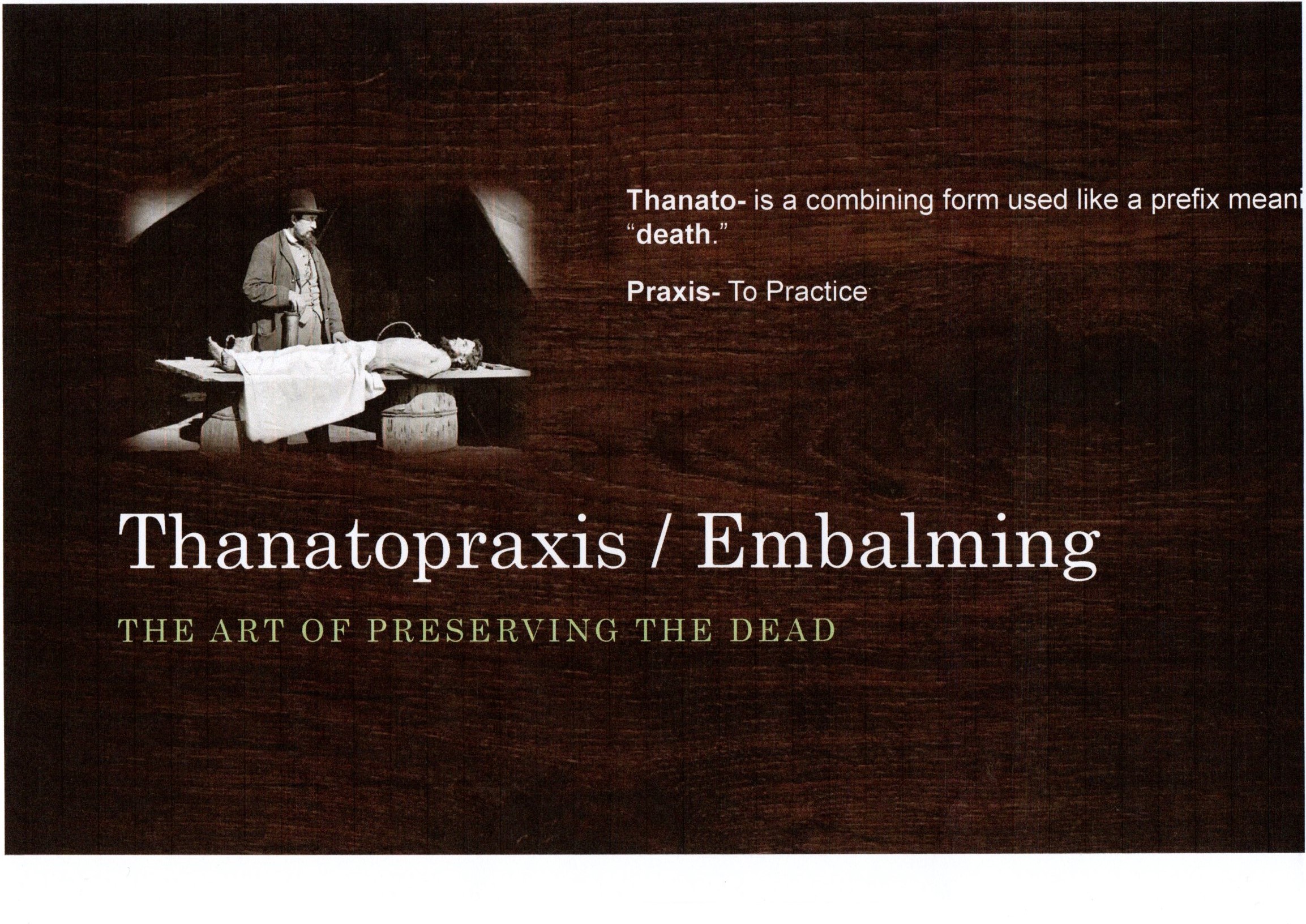 This month's presentation is all about embalming of deceased persons. Our speaker is professional embalmer
Phillip Roulston Dip Emb. MBIE of Sheffield. In Phillip's words: 'My Current role as an embalmer is to preserve the deceased for a
variety of reasons, and where necessary perform reconstructive procedures to try to restore a more natural appearance. I see my role as
being the last moment in which to produce the most pleasant memory that a family can have of a loved one that has passed. I feel that its
pivotal in creating the best possible image for what is already a very traumatic experience, when losing someone you love. I have seen the
adverse effects of the opposite result and they can do great harm, potentially lasting a lifetime. One of the highlights of my career was
being invited to Malawi in 2007 by then President Dr Bingu wa Mathurika to embalm the first lady Ethel Mathurika.' In his presentation
Phillip will describe a brief history of embalming; procedures and practice of modern embalming; problem cases; reconstruction; and his
experience, the human side and 'highlights'.
This month's presentation is all about embalming of deceased persons. Our speaker is professional embalmer
Phillip Roulston Dip Emb. MBIE of Sheffield. In Phillip's words: 'My Current role as an embalmer is to preserve the deceased for a
variety of reasons, and where necessary perform reconstructive procedures to try to restore a more natural appearance. I see my role as
being the last moment in which to produce the most pleasant memory that a family can have of a loved one that has passed. I feel that its
pivotal in creating the best possible image for what is already a very traumatic experience, when losing someone you love. I have seen the
adverse effects of the opposite result and they can do great harm, potentially lasting a lifetime. One of the highlights of my career was
being invited to Malawi in 2007 by then President Dr Bingu wa Mathurika to embalm the first lady Ethel Mathurika.' In his presentation
Phillip will describe a brief history of embalming; procedures and practice of modern embalming; problem cases; reconstruction; and his
experience, the human side and 'highlights'.
Phillip is Managing Director and Embalming practitioner for Omcke Embalming. He is a fully qualified Embalmer with a diploma in Embalming and Member of the British institute of Embalmers, with 22 years' experience within the funeral profession.
Christine Gilligan Kubo: Making Sheffield Green: Can we do it and whose responsibility is it?
 From Christine: 'Sheffield has signed up to achieve Net Zero in carbon
emissions by 2030. What does this involve and how can we achieve this? Do we have to consider only carbon emissions - what about the nature
crisis that we are facing? "Environment Agency Chief Executive warns of a 'silent spring' for wildlife if warnings are ignored
and urges action ahead of the UN Convention of Biological Diversity" (July 2022). So what do we mean by "Making Sheffield
Green"? We are all familiar with the concept of climate change but do we really know what changes will be required in terms of a city
like Sheffield. What can we and should we do in Sheffield to reduce the threats from climate change and biodiversity loss? Is this purely
an issue for national government? What can the council do? What should we, as citizens of Sheffield do? These are some the questions I will
addressing in this talk. I hope you will all come along with your questions and suggestions so that we can give some serious consideration
to one of the most pressing issues of our time.'
From Christine: 'Sheffield has signed up to achieve Net Zero in carbon
emissions by 2030. What does this involve and how can we achieve this? Do we have to consider only carbon emissions - what about the nature
crisis that we are facing? "Environment Agency Chief Executive warns of a 'silent spring' for wildlife if warnings are ignored
and urges action ahead of the UN Convention of Biological Diversity" (July 2022). So what do we mean by "Making Sheffield
Green"? We are all familiar with the concept of climate change but do we really know what changes will be required in terms of a city
like Sheffield. What can we and should we do in Sheffield to reduce the threats from climate change and biodiversity loss? Is this purely
an issue for national government? What can the council do? What should we, as citizens of Sheffield do? These are some the questions I will
addressing in this talk. I hope you will all come along with your questions and suggestions so that we can give some serious consideration
to one of the most pressing issues of our time.'
Dr Christine Gilligan Kubo is the Green Party councillor for Hillsborough ward and deputy chair of the Transport, Regeneration and Climate Change Committee on the council. 'Before becoming a councillor, I was a lecturer at Sheffield Hallam University, Business school, where I lectured primarily in issues around sustainable and responsible business practices. I introduced this concept into the curriculum back in 2009 and it has become an increasingly important area of study since then. I remember when I first took the idea of sustainability in terms of social, environmental and economic sustainability to the academic board as a possible area for study in a business school. I was initially rejected with the words 'It is a fad - it will disappear soon'. How wrong they were, and luckily the next time I presented the concept to be added to the curriculum it was accepted. We have come a long way since then in terms of understanding and awareness but I am not sure that our actions are keeping up with our ambitions.'
Fiona Fox: Behind the Hype: The inside story of science's biggest controversies
This was an extra October event, postponed in July.
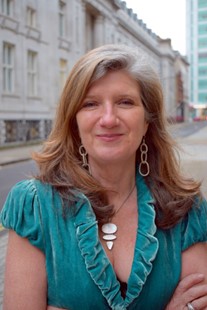 MMR, Climategate, Frankenstein foods and 'babies with 3 parents' … science stories have made headlines over the last few
decades, often for the wrong reasons. For years, science and media seemed to be opposing camps and many scientists actively resisted
talking to the media. Would the two never meet?
MMR, Climategate, Frankenstein foods and 'babies with 3 parents' … science stories have made headlines over the last few
decades, often for the wrong reasons. For years, science and media seemed to be opposing camps and many scientists actively resisted
talking to the media. Would the two never meet?
Founding director of the Science Media Centre, Britain's independent science press office, Fiona argues that a lot has changed since then. Covid has demonstrated how scientists have indeed stepped up to the plate and the status of science journalists has risen inside newsrooms with editors recognizing the importance of getting the science right. Fiona argues that the groundwork for these positive changes had been laid over many years and through a series of controversial stories including animal research, human animal embryos and GM crops.
'In her book Beyond the Hype (signed copies will be on sale at the meeting), Fiona shines a light on the truth behind some of the headline-grabbing stories of the last two decades. From global emergencies like Covid-19 and Fukushima to the shaming of Tim Hunt, she reveals the highs and lows of each media controversy and shows us how more scientists engaging openly has transformed.'
Kevin Precious: The reluctant teacher
'Kevin's stage charisma and poise set him head and shoulders above the previous acts' - The Times
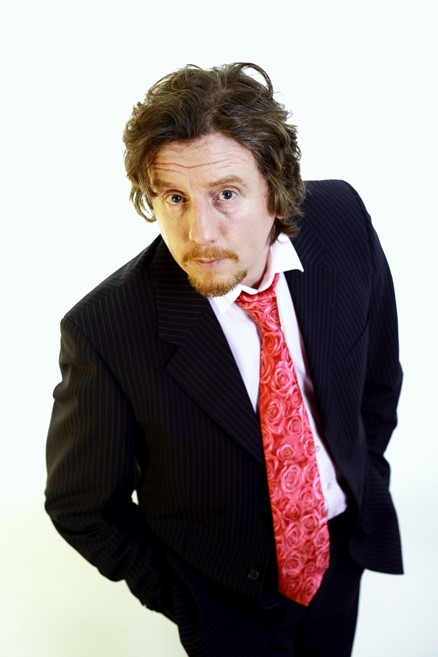 As with Kevin's previous appearance at Sheffield
Skeptics in the Pub, his presentation is in the form a comedy act with an important message and plenty of time for serious discussion.
As with Kevin's previous appearance at Sheffield
Skeptics in the Pub, his presentation is in the form a comedy act with an important message and plenty of time for serious discussion.
'A work-in-progress show as former-teacher turned stand-up-comedian Kevin Precious takes a backward glance at his previous profession, as he looks ahead to Edinburgh 2023. Expect anecdotes and observations aplenty, as well as the odd polemical interjection regarding the parlous state of the profession.'
Chris Hassell: Insectageddon: Where have all the insects gone?
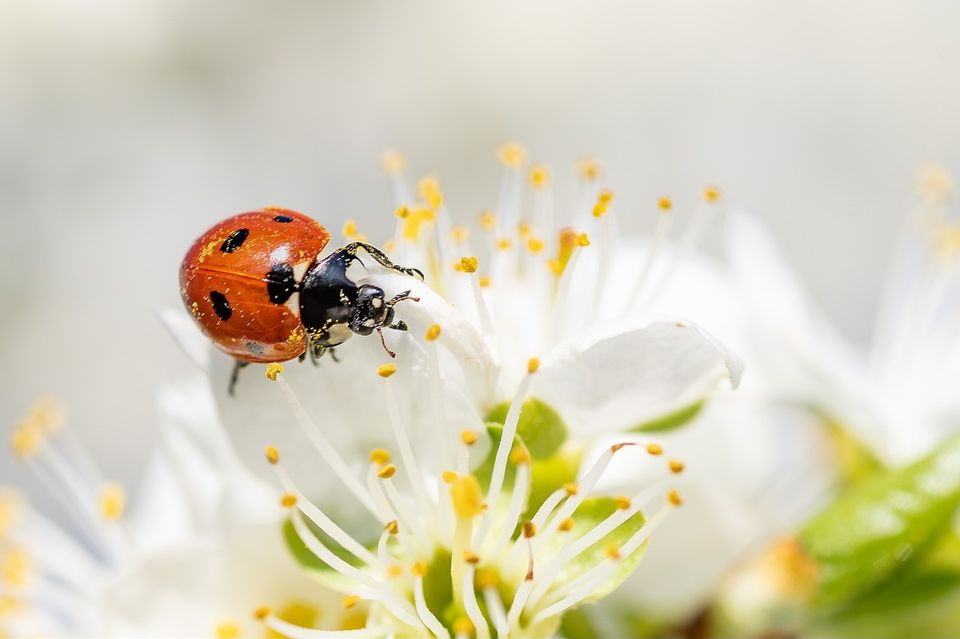 What's the buzz about insect declines? 'Insectageddon' has been high on the media agenda for much of
the past decade, but what do we really know about insect biodiversity, how do we monitor insects, and how confident are we in our
conclusions? Drawing on a range of research from the Victorians to the present day, this talk will explore the history of entomology, the
many varied methods used to count bugs, and some emerging technologies that may help. Come along to find out about the bias in
biodiversity, what's bothering bees, and why birds are boring.
What's the buzz about insect declines? 'Insectageddon' has been high on the media agenda for much of
the past decade, but what do we really know about insect biodiversity, how do we monitor insects, and how confident are we in our
conclusions? Drawing on a range of research from the Victorians to the present day, this talk will explore the history of entomology, the
many varied methods used to count bugs, and some emerging technologies that may help. Come along to find out about the bias in
biodiversity, what's bothering bees, and why birds are boring.
Dr Christopher Hassall is Associate Professor of Animal Biology at the University of Leeds. His research examines the ways in which human activities influence natural systems, with a focus on insects, cities, climate, and emerging technologies.
Richard Firth-Godbehere: A Human History of Emotion: How the way we feel built the world we know
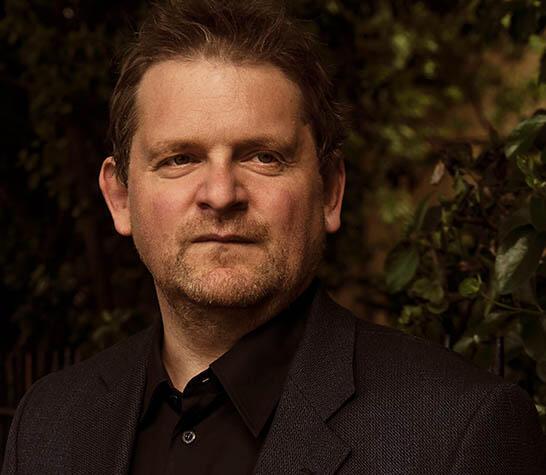 We like to think of humans as rational creatures, who have relied on calculation
and intellect to survive. But many of the most important moments in our history had little to do with cold, hard facts and a lot to do with
feelings. In this talk, Richard draws on psychology, neuroscience, philosophy, art, and history. With a particular focus on the feeling of
disgust, he vividly delves into what we currently think emotions are, illustrates how our understanding and experience of emotions has
changed over time, and how our beliefs about feelings profoundly shaped us and the world we inhabit.
We like to think of humans as rational creatures, who have relied on calculation
and intellect to survive. But many of the most important moments in our history had little to do with cold, hard facts and a lot to do with
feelings. In this talk, Richard draws on psychology, neuroscience, philosophy, art, and history. With a particular focus on the feeling of
disgust, he vividly delves into what we currently think emotions are, illustrates how our understanding and experience of emotions has
changed over time, and how our beliefs about feelings profoundly shaped us and the world we inhabit.
Richard Firth-Godbehere, PhD, is one of the world's leading experts on disgust and emotions. He is an Honorary Research Fellow at the Centre for the History of the Emotions, Queen Mary University of London. Signed copies of his latest book, 'A Human History of Emotion: How the Way We Feel Built the World We Know', will be available at the meeting.
Richard Bentall: Delusions and the Madness of Crowds
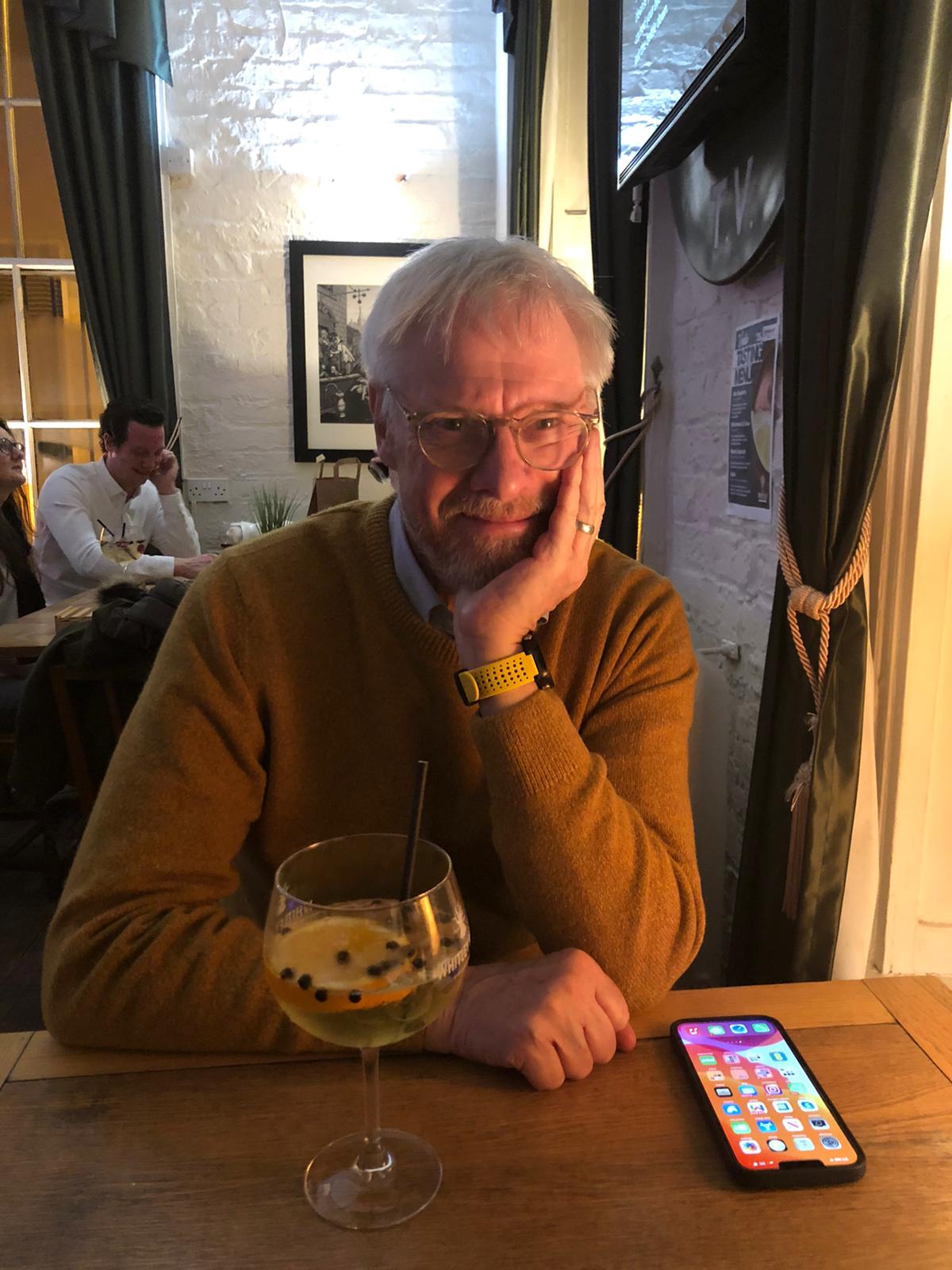 This presentation addresses the question 'What is the difference between 'delusion' meaning a belief that is the
symptom of a mental illness and 'delusion' meaning any seemingly bizarre belief not regarded as such?' The greatest minds in
psychiatry have laboured long and hard to agree on the answer to this question, which has come more to the fore in recent times with the
growing number of pseudosciences and conspiracy theories such as QAnon. And what about Richard Dawkins' claim that the belief in God is
a delusion? In his talk Richard will discuss many suggested ways of distinguishing between pathological and nonpathological beliefs. He
will then suggest a solution of his own, and illustrate how examining pathological beliefs can inform our understanding of beliefs in
general.
This presentation addresses the question 'What is the difference between 'delusion' meaning a belief that is the
symptom of a mental illness and 'delusion' meaning any seemingly bizarre belief not regarded as such?' The greatest minds in
psychiatry have laboured long and hard to agree on the answer to this question, which has come more to the fore in recent times with the
growing number of pseudosciences and conspiracy theories such as QAnon. And what about Richard Dawkins' claim that the belief in God is
a delusion? In his talk Richard will discuss many suggested ways of distinguishing between pathological and nonpathological beliefs. He
will then suggest a solution of his own, and illustrate how examining pathological beliefs can inform our understanding of beliefs in
general.
Richard Bentall is Professor of Clinical Psychology at the University of Sheffield He has studied the cognitive and emotional mechanisms involved in psychotic symptoms such as hallucinations, paranoid delusions and manic states, using methods ranging from psychological experiments, and experience sampling to functional magnetic resonance imaging.
Michael Brooks: The Art of More: How Mathematics Created Civilisation
 1, 2, 3 … ? The untrained brain isn’t wired for maths; beyond the number 3, it just sees ‘more’. So why
bother learning it at all? The mathematics of triangles enabled explorers to travel far across the seas and astronomers to map the heavens.
Calculus won the Allies the Second World War and halted the HIV epidemic. And imaginary numbers, it turns out, are essential to the
realities of twenty-first-century life. You might remember studying geometry, calculus, and algebra at school, but you probably didn’t
realise — or weren’t taught — that these are the roots of art, architecture, government, and almost every other aspect of our civilisation.
From ancient Egyptian priests to the Apollo astronauts, and Babylonian tax collectors to juggling robots, join Michael Brooks and his
extraordinarily eccentric cast of characters in discovering how maths shaped the world around you.
1, 2, 3 … ? The untrained brain isn’t wired for maths; beyond the number 3, it just sees ‘more’. So why
bother learning it at all? The mathematics of triangles enabled explorers to travel far across the seas and astronomers to map the heavens.
Calculus won the Allies the Second World War and halted the HIV epidemic. And imaginary numbers, it turns out, are essential to the
realities of twenty-first-century life. You might remember studying geometry, calculus, and algebra at school, but you probably didn’t
realise — or weren’t taught — that these are the roots of art, architecture, government, and almost every other aspect of our civilisation.
From ancient Egyptian priests to the Apollo astronauts, and Babylonian tax collectors to juggling robots, join Michael Brooks and his
extraordinarily eccentric cast of characters in discovering how maths shaped the world around you.
Michael Brooks is a science writer with a PhD in quantum physics and the author of several books, including '13 Things that Don't Make Sense' and 'The Quantum Astrologer's Handbook' a Daily Telegraph Book of the Year. His latest book is 'The Art of More: How Mathematics Created Civilisation'.
Chris French: The Science of Weird Sh*t: Twenty Years of Weird Science at Goldsmiths College
 Following his retirement in October 2020, Emeritus Professor Chris French reflects
on the work of the Anomalistic Psychology Research Unit, founded in the year 2000. His presentation will provide an introduction to the
sub-discipline of anomalistic psychology, which may be defined as the study of extraordinary phenomena of behaviour and experience, in an
attempt to provide non-paranormal explanations in terms of known psychological and physical factors. This approach will be illustrated with
examples relating to a range of ostensibly paranormal phenomena.
Following his retirement in October 2020, Emeritus Professor Chris French reflects
on the work of the Anomalistic Psychology Research Unit, founded in the year 2000. His presentation will provide an introduction to the
sub-discipline of anomalistic psychology, which may be defined as the study of extraordinary phenomena of behaviour and experience, in an
attempt to provide non-paranormal explanations in terms of known psychological and physical factors. This approach will be illustrated with
examples relating to a range of ostensibly paranormal phenomena.
Michael Marshall: Inside the White Rose: An anti-vaxx, conspiracy theory ecosystem
 When 2020 brought with it a new strain of coronavirus, the world was plunged into
confusion and uncertainty. While most people accepted the realities of the virus, little white stickers began to appear in public around
the world claiming COVID-19 was a hoax concocted by the governments of the world to instil fear into their people, as a pretext for
introducing new, permanent totalitarian laws. The graffiti was part of a co-ordinated grassroots campaign by a group calling itself The
White Rose, urging members of the public to join their encrypted messaging channels to learn more about what was really going on. So
that's what Michael Marshall, full-time skeptical investigator, did. After spending months undercover in the messaging app Telegram, he
reported on the various conspiracy theories spread by the White Rose, and how groups used the Covid crisis to radicalise vaccine hesitant
members of the public into a dangerous ecosystem of misinformation and extremism.
When 2020 brought with it a new strain of coronavirus, the world was plunged into
confusion and uncertainty. While most people accepted the realities of the virus, little white stickers began to appear in public around
the world claiming COVID-19 was a hoax concocted by the governments of the world to instil fear into their people, as a pretext for
introducing new, permanent totalitarian laws. The graffiti was part of a co-ordinated grassroots campaign by a group calling itself The
White Rose, urging members of the public to join their encrypted messaging channels to learn more about what was really going on. So
that's what Michael Marshall, full-time skeptical investigator, did. After spending months undercover in the messaging app Telegram, he
reported on the various conspiracy theories spread by the White Rose, and how groups used the Covid crisis to radicalise vaccine hesitant
members of the public into a dangerous ecosystem of misinformation and extremism.
Michael is the Project Director of the Good Thinking Society, Editor of The Skeptic, and President of the Merseyside Skeptics Society. For further detail visit: https://goodthinkingsociety.org/about/.